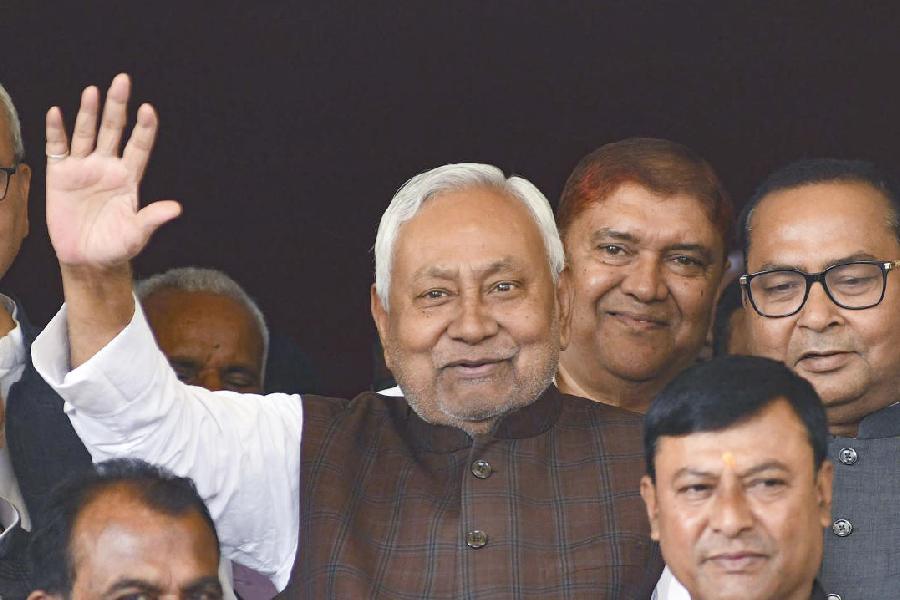|
|
Whether because the West’s recovery from recession may be more fragile and may last longer than expected, or because Barack Obama’s policies towards Islam, Palestine, Iran and AfPak are foundering, or a Dick Cheney mindset is returning to the American forefront, the acrimony between the West and China seems to be growing sharper and more frequently expressed. Washington blames China for opposition to additional sanctions against Iran and for obstructing a more ambitious conclusion at the Copenhagen climate change conference. Google, which is backed by the United States of America and is set to leave China in April, has accused China of censorship and cyber attacks, while the American Chamber of Commerce in China finds that 38 per cent of its members feel unwelcome.
The US has criticized China for mercantilism and currency exchange manipulation, saying the yuan is undervalued by 20-40 per cent. But China has a huge trade surplus of $450 billion this year and reserves of $2.4 trillion, including a large proportion of US debt. Washington is acutely conscious of China’s clout as creditor, with an economy that grew at nearly nine per cent in 2009 and budget deficit at only 2.2 per cent of the gross domestic product despite a big stimulus package. So the US does not dare apply a surcharge on imports from China as was the case with Japan and Germany in the 1970s. China has recently unloaded some $34 billion in US securities, a move that has political significance in both countries and has caused concern in America, since Sino-US interdependence is at an all-time peak, with global politics and economy increasingly reliant on cooperative Sino-US relations.
Ties between Australia and China have soured with China warning Australia against politicizing and interfering in its trial, which was partly behind closed doors, of four Rio Tinto executives for corruption and spying. But China is Australia’s chief trading partner, a vital customer for Rio Tinto, and Rio Tinto has just signed a three billion dollar joint venture for iron ore in Guinea with Chinalco of China. Therefore, like the US, Australia finds that its reprisal options are highly constrained.
There has been a surge in cyber attacks originating in China that have significantly increased over the past year; US Congress and government agencies reported 1.6 billion attacks every month. The software security firm, McAfee, has raised fears of mass Chinese cyber attacks in future, during which India will be especially vulnerable, not only because of its “lowest rate of security measures” but also because it can be used as a gateway to cripple services in the industrialized world, particularly in the US, from where 85 per cent of Indian software revenues are derived. Security is expensive, and being low-cost outsourcing providers, Indian companies cut costs on security to remain competitive.
China’s relations with exiled Tibetans, never cordial, have come under greater stress. The Chinese-selected Panchen Lama Gyaltsen Norbu has been appointed to the Political Consultative Conference while the Dalai Lama-recognized divine Gedhun Nyima remains anonymous in Tibet. The Tibetans in exile have responded sharply to Beijing claiming the right to approve any reincarnation of living Buddhas or lamas, asserting that this was an internal matter for the Tibetan people and will take place according to traditional procedure — though the Dalai Lama himself has offered several alternatives to the traditional religious rituals and divinations; there could be an election, or his appointment, even of a woman, as successor. He has further incensed Beijing by claiming that the Chinese are trying to annihilate Buddhism, that there is a serious problem in Tibet, and expressing sympathy for the people of ‘East Turkestan’, the name given to Xinjiang by Uighur separatists.
The Chinese, on their part, have hit back, professing that they are the injured party. They strongly object to the latest US $6.4 billion arms sales to Taiwan and threaten action against the exporting companies. They condemn Obama’s meeting the Dalai Lama as interference in their internal affairs. They accuse Google of spying and thwarting China’s indigenous technology. As for Copenhagen, the Chinese premier, Wen Jiabao, suggests he was humiliated by not being invited to a meeting with European Union leaders and Obama. Beijing says exchange rates have little to do with imbalances, Chinese surpluses soared even when the yuan appreciated 20 per cent between 2005 and 2008, and the present fixed rate of 6.8 to the dollar is an important ingredient for stability. On Iran, China states that it supports the non-proliferation treaty and is opposed to any nuclear weaponization, but that the proposed sanctions against the Revolutionary Guard, shipping, banking and insurance may force Teheran into a position of no retreat, and Iran deserved to be treated as an equal rather than be subject to threats. Beijing gratuitously advises Washington that the rhetoric of Obama’s speech to Muslims in 2009 must be translated into concrete actions since Arab enthusiasm has cooled, and the Israel-Palestine issue lies neglected.
Demonstrations of belligerence by authors belonging to the Chinese military are grist to observers who see menace in Chinese intentions. Perhaps to gauge military opinion, test public reaction, or reflect concern over North Korea’s nuclear testing, a number of serving and retired officers have recently been permitted to recommend an assertive policy beyond their country’s borders. Three army officers have urged the selling of US debt, increase in defence spending and expanding of deployments of forces. Another calls for China to abandon modesty and displace the US as a global champion: “We need a military rise as well as an economic rise and the strongest military force to deter the USA.” A general’s observation that “competition has shifted towards space” underscores the fact that China’s space programme is military-dominated. Chinese academics echo such sentiments, noting that national interests extend across borders, and it was necessary to enhance the ability to protect them, including by a blue-water navy with carriers and overseas bases.
China has widened its anti-piracy effort in the Red Sea by offering to escort United Nations food shipments to Somalia, which necessitates more than the three vessels there, the first time in centuries that the Chinese navy has operated beyond home waters. A retired admiral opines that growth in submarines operated by countries of the Association of Southeast Asian Nations could pose a threat — although China has the world’s biggest submarine development programme — and advocates a naval base in the Middle East. An air force colonel also urges overseas bases for China to shoulder its international responsibilities, to provide support facilities for China’s economic interests, ship escorts, and disaster relief in the interests of, needless to say, world peace. A prototype base could be started on Mischief Reef in the South China Sea, and other ports where China enjoys friendly relations in Asia, East Africa and the Indian Ocean: Gwadar, Hambantota and Chittagong, which are among those envisaged as ‘access points’ or ‘friendly locations’ to support long-range naval deployment. The same air force officer writes that China is surrounded by hostile nations, predicts war in 10-20 years and identifies the enemy: “If the US can light a fire in China’s backyard, we can also light a fire in their backyard.”
The Chinese authorities wish to contain the mounting international concern and have no desire to jeopardize ties with their key trading partner and the biggest military and economic power, the US. Till some years ago, the Chinese were adamant that they desired “no places and no bases”; the 1995, 1998 and 2000 white papers restated that China did not seek military expansion, military bases, or stationing troops abroad. Now ‘places’ to handle the needs of non-war military operations without pre-positioned munitions and a large-scale military presence are apparently seen as potential assets, enabling China to project power without alarming the US, India or Japan, and making it more acceptable for host countries.
China’s rise implies it is more self-confident, assertive, and as a global player, bound to come into conflict with strategic interests led by the US. As China’s trade minister bluntly told The Washington Post, “America is the one that needs to adjust.” Washington has come to acknowledge that China is no new version of the Union of Soviet Socialist Republics, but a far more formidable adversary. If Copenhagen is any guide, there will be greater pressures on China, but Beijing will insist on reciprocal satisfaction and its leverage will apply to the extent that the world community is prepared to accept more strident and demanding Chinese behaviour.
Indian analysts are equally divided between viewing rising China as a dove and a dragon. Relations between the two neighbours, both major economic and nuclear powers with differing political and cultural traditions, are unlikely to be uninterruptedly calm, and it is reasonable to expect periods of a costly state of tension. These will need to be acceptably contained, and will give India’s diplomats, theoreticians and military planners some continuous intellectual exercise.











